Website Temporary Closed
Sega Master System
The Sega Master System can be seen as either a failure or success, it depends on which market you are talking about. While the console did poorly in the US market due to Nintendo's monopoly, the opposite can be said for some of the other markets, namely Europe.
The Master System was officially released in the States in 1986. The decision to release the console in the west before it was released in Japan was an attempt to catch up with the massive gain Nintendo already had on the market. Nintendo had very wisely taken advantage of the video game crash by plugging the gap in early 1985 with its new Famicom or Nintendo Entertainment System as it was known in America.
[collapse collapsed title=read more...]
The American consumers had gone mad for the new NES console, and at one point the demand for the machine was more than Nintendo could meet. They had waited too long for decent quality titles and Nintendo came armed with a number of high quality arcade conversions, and a few new titles to whet the consumer’s appetite. The console was a huge success and game developers flocked to Nintendo in droves, especially as Atari recently ceased to exist and the console market had all but dried up.
It’s a fact that Sega's Master System was technically the better machine. Just as the NES was based on the Famicom home computer, the Master System was also based on a home computer - the Sega SC-3000; its third machine. It had better specs the NES, and with Sega's knowledge and reputation of making quality arcade games, it should have done much better than it did. But in the end it had have nothing to do with the machines, but the way in which Nintendo dealt with software developers that made the SMS a flop.
Such was the demand for developers to produce games for the latest console, that Nintendo ruthlessly locked them into producing games exclusively for them. It was written into the licenses that the games could not be ported onto other machines, which effectively gave Nintendo a monopoly over the American Video game market. By the time Sega arrived on the scene, most developers were already associated with Nintendo, and only a handful were left for Sega.
Sega battled Nintendo for nearly two years for the American market before deciding to cut their losses. Nintendo had gained so much territory that Sega just could not compete. They handed over the control of the Sega Master System to Tonka Toys and concentrated their efforts in Europe where they had recently released the console. This proved to be a wise move for Sega and the Master System was much more successful here than anywhere else. This was almost a two-fingered salute to Nintendo who until now must have been smugly rubbing their hands all the way to the bank.
A large number of developers, most of who had made a name for themselves on the Commodore 64 and Spectrum home computers, started producing games for the SMS. In the same way that Nintendo America had secured all the best developers stateside, Sega managed to do the same in Europe (and without 'illegal' market practices). This was the turning point in Sega's fortune, and would be followed by a number of other 'victories' over Nintendo in the forthcoming years.
In 1989 Sega caused a stir with the release of the Genesis (Megadrive) console. This caused people in the States to change the way they felt about Sega, and Sega decided to buy back the rights to the Master System from Tonka. In all honesty, Tonka had been hopeless at marketing the SMS, and had made little or no difference to sales in the two years they had had control of the console. They hadn't won any additional developers and had mainly shipped poor titles over titles from Japan, most of which should have stayed there.
Sega redesigned the Master System, and released a 'bare bones' console - the Master System II, which was not much more than a box with a cartridge slot and a power switch. They dropped the price, and spent a great deal on advertising the console, and released a number of successful Genesis games, namely Streets of Rage & Sonic the Hedgehog. This improved sales slightly, but by now gamers had turned their attention to Sega's 16Bit console, so in reality the move came too late.
Sega finally found success with the Master System in South America. They licensed the console to Tec Toy, who redesigned the casing of the Master System II and released it as the Master System III in Brazil. The console and games were inexpensive to produce, and the sheer volume of Brazilian buyers meant the price dropped, which in turn meant even more people could afford the console. Indeed, the console was a massive success and was only taken off the shelves in 1997, after selling over 2 million units.
Personally, I loved the console. There were a number of great gun games (of which I am a fan) and while there were very few 3D games, I think the glasses worked remarkably well, even if they made me feel a little sick after more than an hour! I have always been a big advocate of the Wonderboy games, and with four such titles released on the SMS this is a good enough reason for it to be my preferred 8Bit console!
So there you have the history of the Master System. I can't help feeling sorry for Sega in some ways. The console failed in America because of Nintendo's illegal monopoly of the market, and the poor marketing of the console once Tonka took over. I can't help wondering what would have been if the developers had gone with Sega, the better of the two machines. Would the games have been any better? Would there have been more quality 8Bit titles? Or would we just have the same games in different packaging and different sized cartridges?
[/collapse]
- HOME


- PRODUCTS

- 3DO
- Amiga CD32
- Amstrad GX4000
- Atari 2600
- Atari 7800
- Atari Jaguar
- Atari Jaguar CD
- Atari Lynx
- Bandai Wonderswan
- Coleco
- Colecovision
- Famicom
- Famicom Disk System
- Grandstand
- JAMMA
- Mattel Intellivision
- MB
- Microsoft Xbox
- MSX
- Neo Geo AES
- Neo Geo CD
- Neo Geo MVS
- Neo Geo Pocket
- Nintendo 64
- Nintendo Game and Watch
- Nintendo Gameboy
- Nintendo Gameboy Advance
- Nintendo Gameboy Colour
- Nintendo Gamecube
- Nintendo NES
- Nintendo Virtual Boy
- PC Engine
- PC Engine CD
- Philips CDI
- Sega 32X
- Sega Dreamcast
- Sega Game Gear
- Sega Genesis
- Sega Master System
- Sega Mega CD
- Sega Megadrive
- Sega Nomad
- Sega Saturn
- Sony Playstation
- Sony Playstation 2
- Super Famicom
- Super Nintendo
- Texas Instruments
- Tiger Game Com
- Tomy
- Vectrex
- Japanese Video Game Imports
-

- MODIFICATIONS

- Switchless Modification
- Modification Sega 32X
- Modification Sega Dreamcast
- Modification Sega Megadrive
- Modification Neo Geo AES
- Modification Neo Geo CD
- Modification Nintendo NES
- Modification Sega Master System
- Modification Sega Mega-CD
- Modification Sega Nomad
- Modification Sega Saturn
- Modification Super Nintendo
-

- TECHNICAL INFO


- NEWS


- ABOUT US


- MEMBERS


- CONTACT US


Log on
x
Just In!
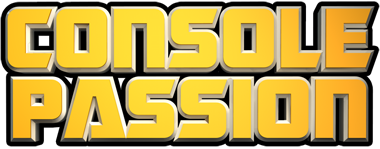



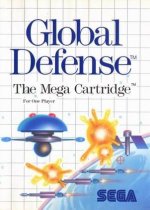
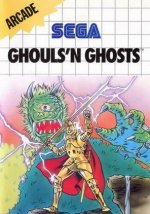


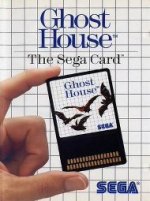

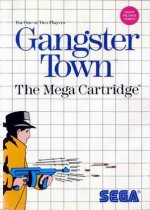

 Save time
Save time